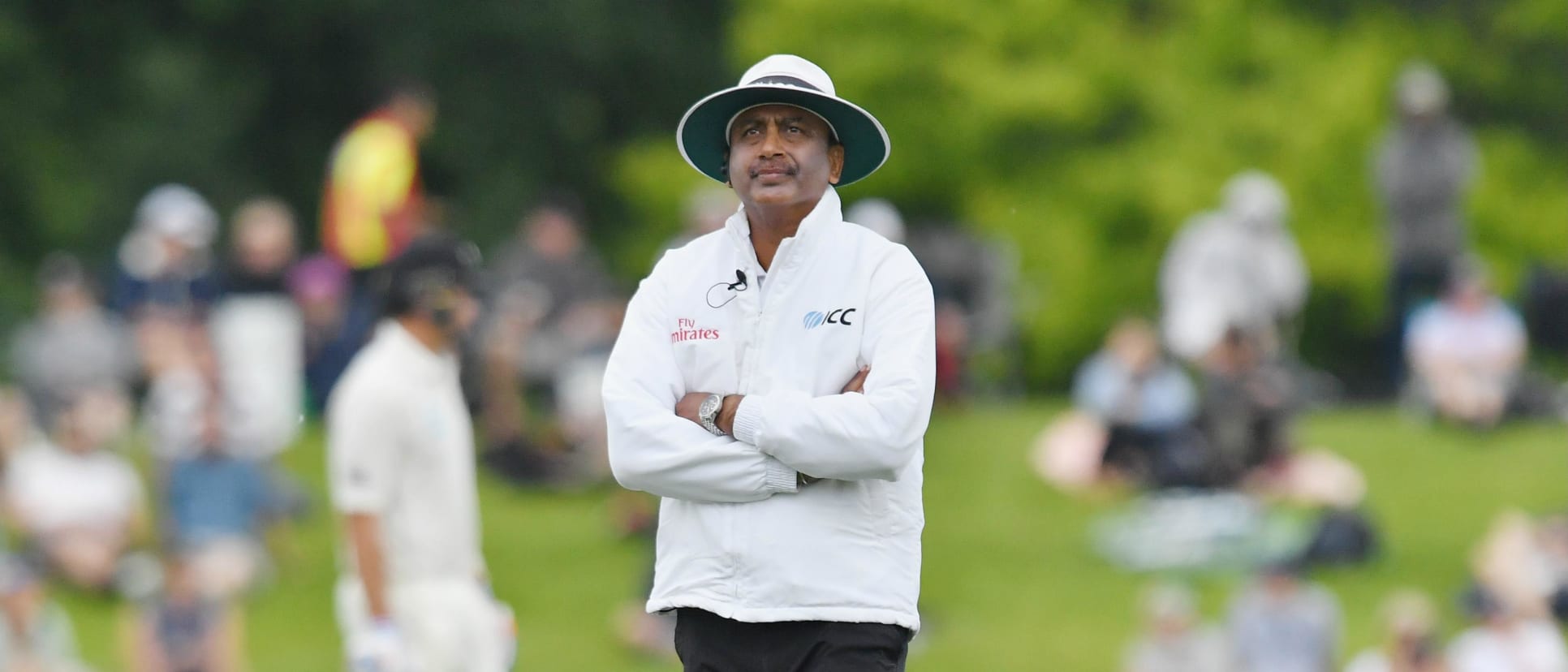Know Your Match Officials: Sundaram Ravi

Ravi may not have played international cricket or even the first-class game like many of his contemporaries on the Emirates Elite Panel of ICC Umpires but his passion for cricket is no less. It was this very love that drove him to take to umpiring as he felt it was “the best way to keep in touch with the game” after his playing days as a club cricketer.
The 51-year-old does not fail to emphasise on the honour of officiating in top-class matches and takes every possible step to prepare for his assignments. Reading is a hobby but that too furthers his preparations as he reads either self-help books, those on sports personalities, and books written by officials of other sports.
He picks his first assignment at Lord’s two years ago and the first day-night Test, also in 2015, as his most cherished matches to date.
“There are a lot of games that I can remember for various reasons – the first Lord’s Test which I officiated in - between New Zealand and England, which was a great honour, to go and officiate in Lord’s, the home of cricket, and it was a good match.
“Again, the first pink-ball Test match, in Adelaide, between New Zealand and Australia, which was a great game. Even though the game lasted only three days, it was evenly contested, closely fought, a good game. It was a new experience for me, as an elite umpire, standing in the first day-night Test match.”
Ravi says he took the opportunity of officiating in a warm-up match between New Zealand and Western Australia ahead of the Adelaide Test to prepare for the new challenge.
“I volunteered to officiate in that match – (so that) I could make out what the ball does during twilight time and night time, (it gave a) good idea of how the pink-ball Test match would be,” shares Ravi, who counsels that umpires have to change their body clocks for day-night Tests, which should be treated as five day-night ODI matches.
Ravi says the preparations differ for each format but the notes that he takes during matches help him do that as well as to remember player behavior patterns.
“I know about player traits, how to handle difficult players. I watch a lot of clips about those teams or what happened on that ground, go through playing conditions, any special regulations affecting a particular series,” he says.
Asked if he has added pressure since he is the first Indian in the Emirates Elite Panel of ICC Umpires after Srinivas Venkataraghavan, Ravi says one has to learn to live with pressure.
“Officiating at this level is never going to be easy. You are in the top-12 - you know the world’s best 12 umpires – it’s a great honour and pride for me. There is always pressure in match officiating because you want to perform well. The whole world is looking at you, there is lot of scrutiny. There is the press, there are commentators, captains, they all judge you, evaluate your performance. Sometimes when you make an error, they criticize you.
“It is part of your job, that’s it. You have to take it in the right spirit and move on. The only thing is you have to give high consistent performances, that is what is my goal. I can’t aim to do a perfect job in umpiring but as far as possible, good strong performances,” adds Ravi, who has been officiating in international matches since 2011.